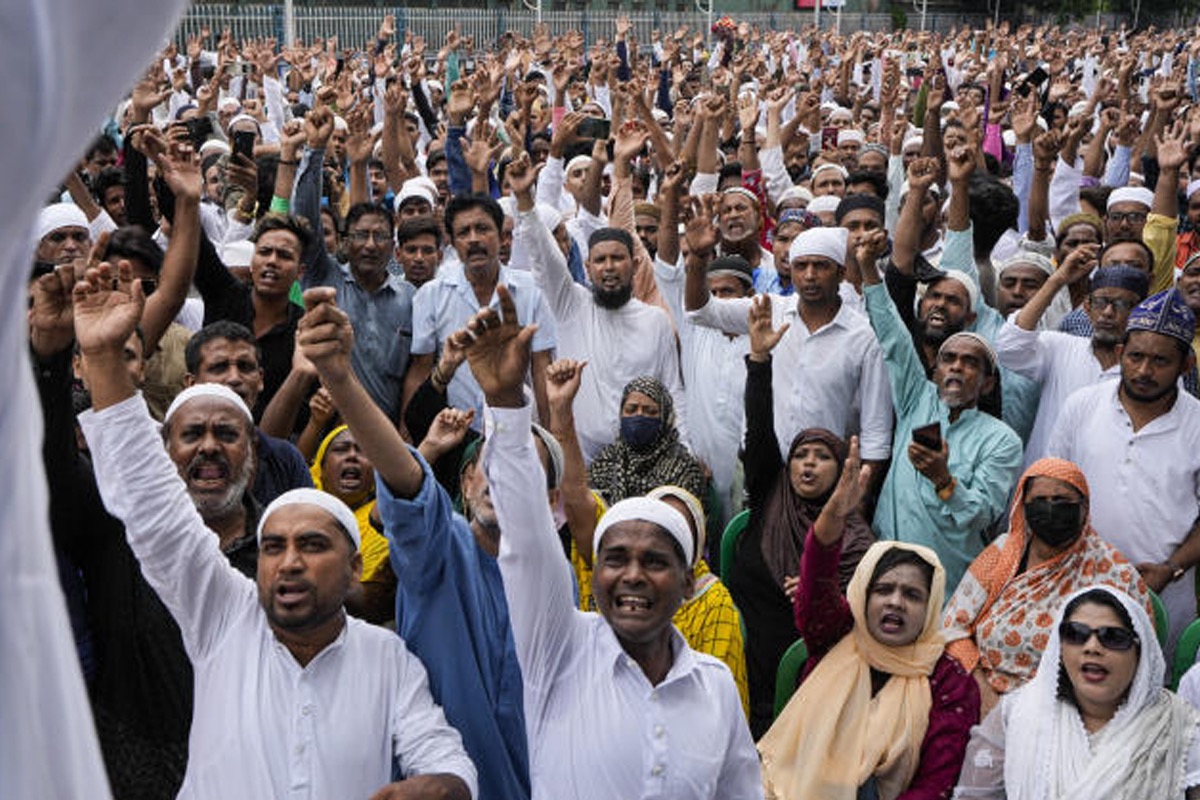Around 300 Pakistani nationals – many from Pakistan-occupied-Kashmir (PoK) – drowned after an overcrowded Libyan boat sank off the Greece coast last week. The Pakistani embassy in Athens identified 12 nationals who escaped drowning, out of the hundreds on the boat. But the numbers are higher. For years, Pakistanis have been migrating to Europe for a better life – often resorting to desperate measures that put their lives in danger. In February, more than 20 Pakistanis were among 60 who died when a boat capsized near the southern Italian region of Calabria. Two months later, in April, Pakistanis were among the 57 bodies that washed ashore in Libya after two boats carrying refugees sank in the Mediterranean Sea.
Pakistani authorities prevented an estimated 19,000 people from leaving the country through land or air routes in 2022 while 10,000 people were intercepted so far this year. More than 34,000 people from Pakistan were deported from various European countries in 2022 for staying without documents. Previously, most of the Pakistanis trying to reach Europe used to take land routes, which involved travelling through Iran, Turkey, and Greece, but the trend appears to be changing.
Europe has been a destination for individuals fleeing persecution, violence, and human rights abuses. Muslims, like individuals from other religious and ethnic backgrounds, have sought refuge in Europe due to humanitarian crises, seeking safety and protection from conflict, religious persecution, or oppressive regimes. The question that Indian Muslims, especially from Kashmir, which a few years ago was embroiled in an armed insurgency for secession from the Indian state, should be asking is why are so many Muslims fleeing Muslim-majority countries.
Wasn’t Pakistan created as a New Medina, envisioned as an Islamic haven by its elite founder Muhammad Ali Jinnah and sole spokesperson for subcontinental Muslims in the 1940s? So, what happened? Did the Two-Nation Theory, which had failed in 1971 when East Pakistan (Bangladesh) fought to become independent from the Islamist ideology of the 1940s, fail twice over in the 2020s? Somali-British poet Warsan Shire sums up this crisis in a single sentence. “You have to understand, no one puts their children in a boat unless the water is safer than the land.”
ALSO READ: Pakistan bans Holi celebrations in university
The New Medina (Pakistan) now became a “place of hopelessness” as PoK native and survivor of the tragedy puts it in a media interview. “Pakistan is mired in an unprecedented economic crisis, with backbreaking inflation making food a luxury for millions of people. With high unemployment and no end in sight to the economic woes, Pakistanis have no choice but to head abroad for a better future.”
Many secular Indian Muslims from Kashmir who believed their future lies within the Indian state recall their struggle against Islamist idealogues and Jihadi terrorists in the Valley for three decades, which rendered them ideological refugees in their own country along with the thousands of ethnically-cleansed Kashmiri Pandits (Hindus) since the 1990s. Such Muslims, who supported Kashmiri Pandits during their persecution in the 90s, understand Abid Kashmiri’s statement well, something which Christopher Snedden’s book on ‘Azad Kashmir’ did not address at all.
Muslims persecuting Muslims has been an ongoing conflict since the Night of Saqifah in 632 AD after the Prophet’s demise, when tribal affiliations and Arab superiority took precedence over his message. Since then, political instability, armed conflict, and human rights abuses in several Muslim-majority countries have resulted in displacement of indigenous populations, erasure of their cultures and forced migration, current example being Yezidis fleeing ISIS-controlled regions. Conflicts such as the Syrian civil war, unrest in Iraq, Afghanistan, and other regions have led to a significant refugee flow towards Europe, with Muslims forming a substantial portion of those seeking asylum and protection.
Pakistan’s implosion keeps entangling its citizens in the regressive, fascist, and divisive Two-Nation Theory. Recently, Pakistan imposed a controversial ban on the celebration of the Hindu festival of Holi in universities, sparking concerns over religious intolerance. The decision came after a video of students joyfully celebrating Holi at Quaid-i-Azam University in Islamabad went viral. The ban has been justified to protect the country’s Islamic identity. Pakistani authorities said that the Holi celebration has had an adverse impact on the country’s image.
ALSO READ: Elections lurk quietly in shadows of Modi’s US visit
What image? The treatment meted out to Pakistani passport holders is evidence of its image globally. The Greece boat tragedy also highlights how Pakistanis were kept in the hold of the boat and not allowed to leave for days. It is a common occurrence for Pakistani citizens to try to blend in with the Indian crowd in events of humanitarian disasters and wars. The Indian government tries to rescue all its citizens irrespective of ethnicity and creed. Not to mention the globe’s instinctive visual synonymity of Pakistan with terrorism and Jihad, now prevalent in media and cinemas.
In Pakistan’s refugee crisis lies an important lesson for the subcontinental Muslims whether they live in India, Pakistan, Afghanistan, Bangladesh, or the Maldives – that exclusionary politics was and continues to be detrimental. It should serve as a warning for anti-India and Hindupohobic agenda activists, conflict entrepreneurs and Muslim political as well as religious groups trying to steer the Indian Muslims towards the divisive ideology of Ahmed Sirhindi and Maulana Maududi in 2023.









